Sometimes life feels heavy, unclear, or overwhelming — and it’s hard to know where to begin. Psychotherapy offers a space where you don’t have to have the answers. Together, we can explore what’s going on beneath the surface at a pace that feels safe and supportive.
This is your space to grow, reflect, and feel more like you again.
Sessions are 60 minutes long and are held either online or in person. I offer a warm, collaborative space where you can explore your thoughts, feelings, and patterns without judgment or pressure. Some weeks might feel full of insight; others may simply be about showing up — both are welcome.
I work integratively, drawing from several therapeutic approaches to tailor support to you — your experiences, your history, and your pace. Below are the main modalities I use and how they can help:
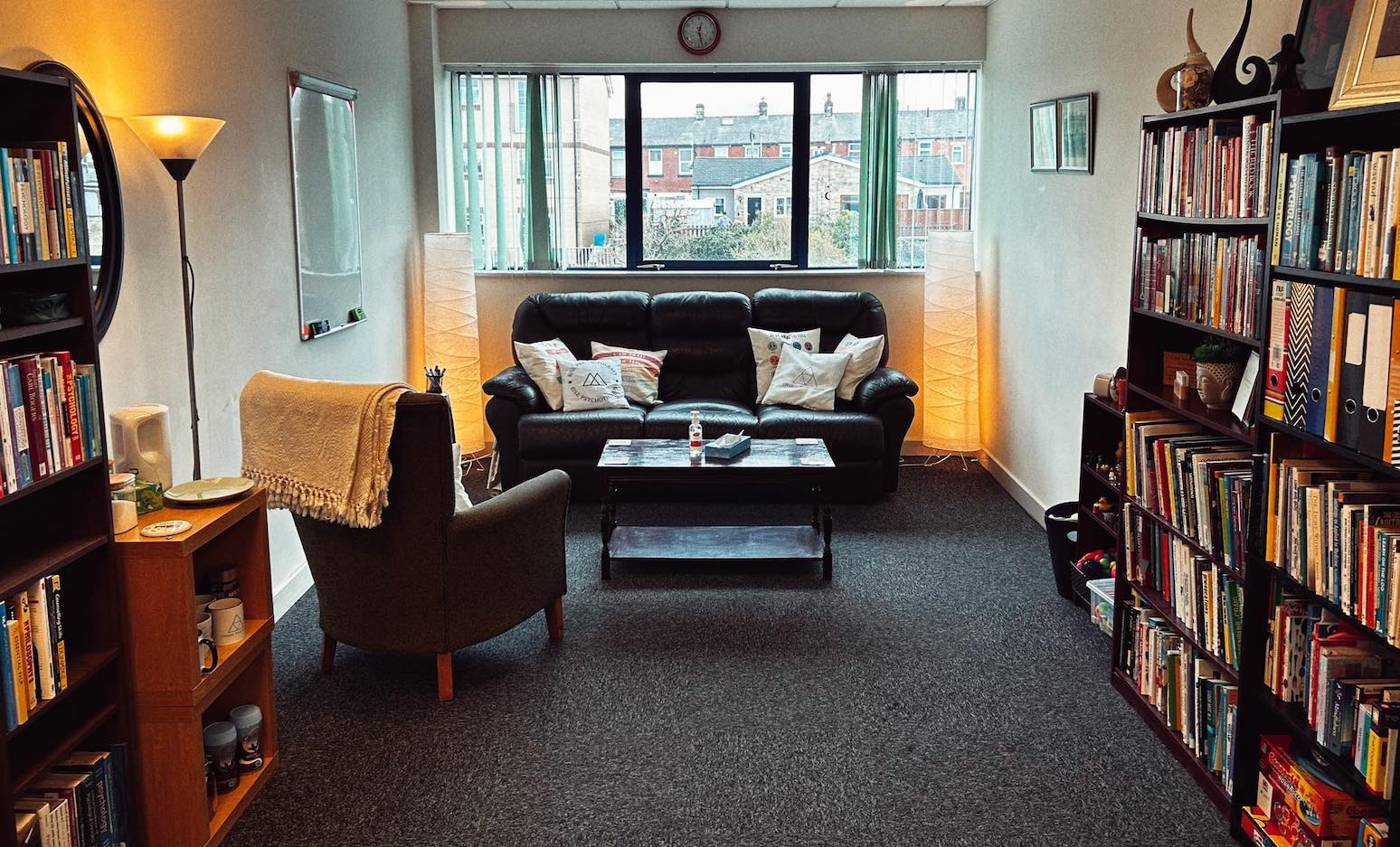
Person-centred therapy is a gentle, supportive approach to counselling that focuses on you as the expert of your own life. Rather than giving advice or instructions, this type of therapy creates a space where you can feel truly heard and accepted — just as you are.
The idea is that when we feel safe, respected, and not judged, we naturally begin to better understand ourselves, work through our challenges, and grow in the direction that feels right.
As Carl Rogers, the founder of this approach, once said: “The curious paradox is that when I accept myself just as I am, then I can change.”
This therapy helps you explore your thoughts and feelings at your own pace, so you can build self-trust, strengthen your sense of self, and make meaningful changes — not because someone tells you to, but because it feels right for you.
It’s about coming home to yourself, one step at a time.
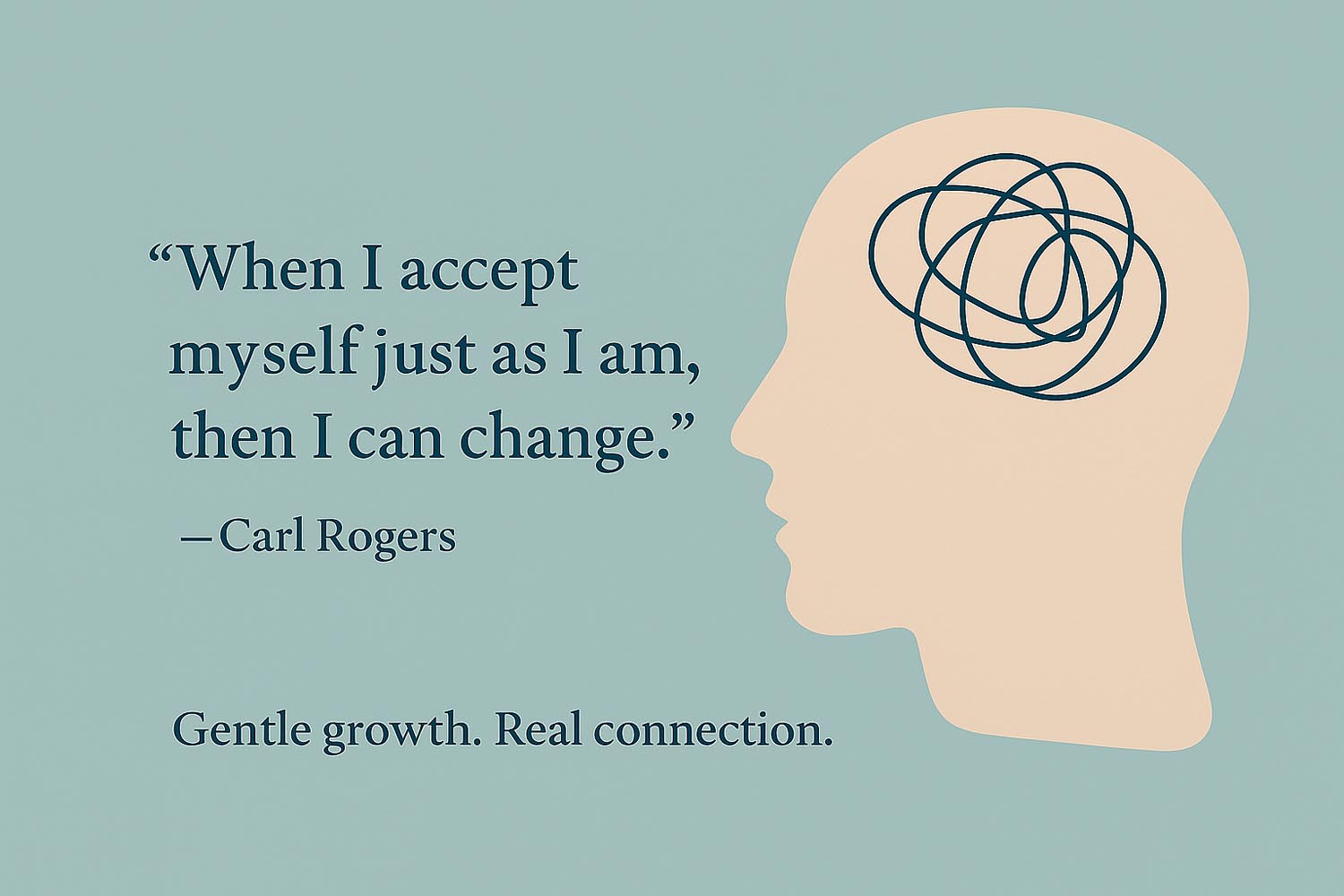

Psychodynamic therapy is a type of talk therapy that helps you explore how your past — especially early relationships and experiences — might be shaping how you feel, think, and behave today. It’s about making the unconscious conscious, so you can understand patterns that may be holding you back and begin to make more intentional choices.
This approach is especially helpful if you find yourself stuck in the same emotional loops, struggling with self-worth, or feeling unsure why certain situations affect you so deeply.
As psychodynamic therapist Richard F. Summers puts it: “We see the central task of psychotherapy as the rewriting of a more complex and useful narrative of the patient's life and experience.”
In therapy, we gently explore your inner world — not to dwell in the past, but to understand how it lives in the present. With time, this can lead to greater self-awareness, emotional clarity, and a stronger sense of who you are and what you need.
It’s not about quick fixes — it’s about lasting insight and meaningful change.
Existential therapy is a reflective, philosophical approach to counselling that helps you explore life’s deeper questions — like meaning, freedom, responsibility, and what it means to be truly yourself. It’s not about fixing symptoms, but about understanding your experience in a fuller, more honest way.
This type of therapy can be especially helpful if you’re feeling stuck, lost, or questioning your direction in life. It supports you in facing uncertainty, making authentic choices, and finding meaning — even in difficult circumstances.
As existential psychotherapist Irvin D. Yalom writes: “The act of revealing oneself fully to another and still being accepted may be the major vehicle of therapeutic help.”
In existential therapy, we explore how you relate to yourself, others, and the world around you — not to give you all the answers, but to help you live more consciously and courageously. It’s about making space for the questions that matter most, and learning to live in alignment with your values, even when life feels uncertain.
You don’t need to have it all figured out — just a willingness to explore what it means to be you.
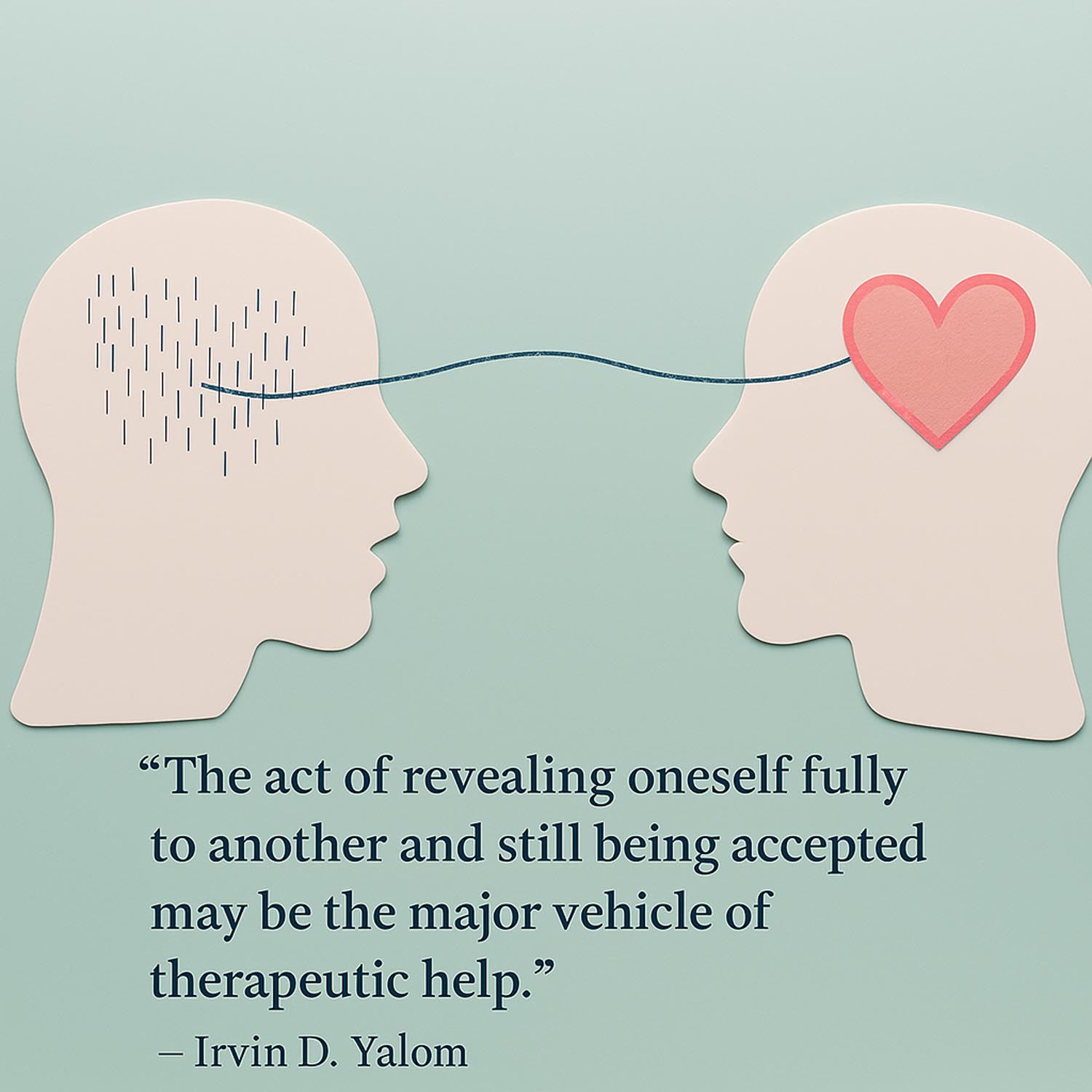
Using a gentle, stabilising approach, we explore the impact of trauma on your nervous system, identity, and wellbeing. Healing happens at your pace, with safety and consent at the centre of our work.
You may feel like different ‘parts’ of you are in conflict — a perfectionist part, a rebellious part, a scared inner child. This work helps you understand and soften those inner dynamics with compassion, not criticism.
Somatic awareness is about tuning into your body — noticing how emotions, stress, and past experiences show up physically. It’s a gentle, body-based approach that helps you reconnect with yourself from the inside out.
In therapy, this might mean slowing down to notice your breath, where you hold tension, or how your body responds in certain situations. It’s especially helpful if you often feel disconnected, overwhelmed, or stuck in your head.
As trauma therapist Peter Levine explains: “Trauma is not what happens to us, but what we hold inside in the absence of an empathetic witness.”
Somatic awareness helps you become that witness for yourself — with support. By learning to listen to your body’s signals, you can begin to release stored stress, regulate your nervous system, and feel more grounded in the present.
You don’t need to have the right words — your body already speaks volumes. This approach simply helps you learn how to listen.
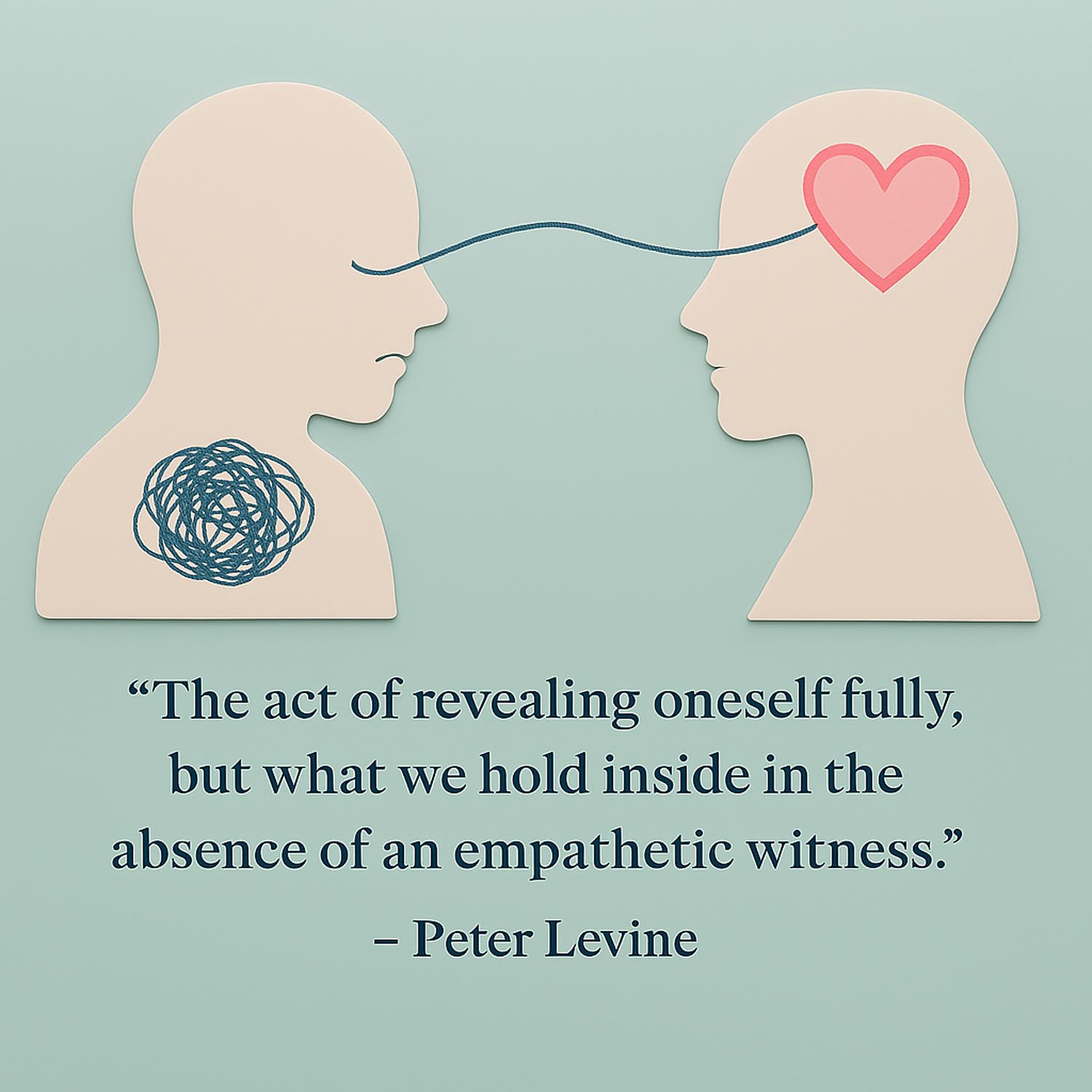
Neurodivergent-affirming therapy is an approach that recognises neurological differences — such as autism, ADHD, dyslexia, and others — as natural variations of the human brain, not problems to be fixed. Instead of focusing on “normalising” behaviour, this way of working supports you in understanding your unique wiring, building self-trust, and unmasking safely at your own pace.
It’s about creating a space where you don’t have to explain or justify how your brain works — because it’s already valid.
This approach can be especially helpful if you’ve spent years masking, people-pleasing, or feeling like you had to “fit in” to be accepted. In therapy, we explore what authenticity looks like for you — and how to meet your needs without shame.
As author and neurodiversity advocate Steve Silberman writes: “Neurodiversity may be every bit as crucial for the human race as biodiversity is for life in general.”
In practice, this means:
You don’t need to change who you are to be supported. You just need a space that sees you clearly — and affirms that your way of being in the world is already enough.
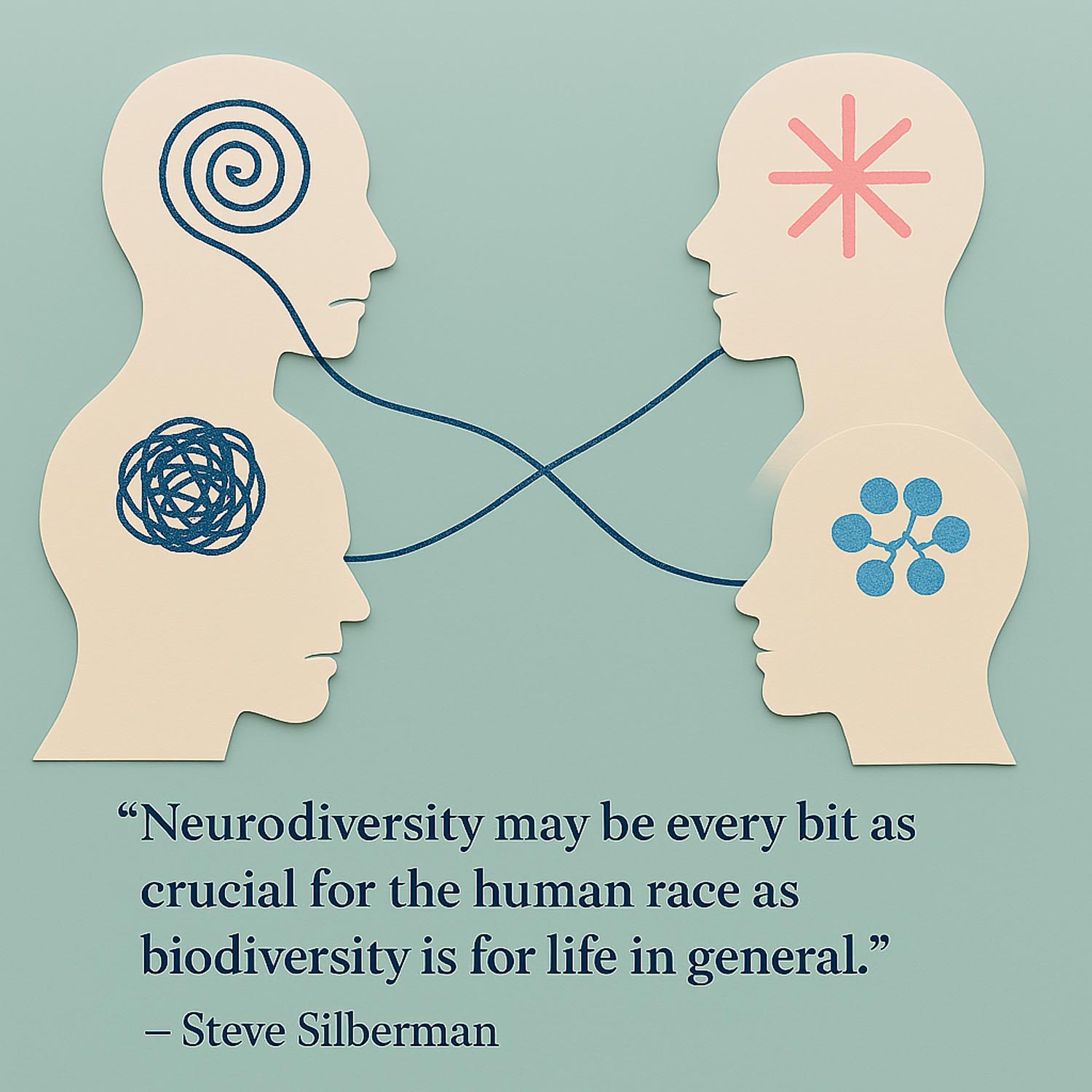
Not at all. Some people arrive with a clear challenge, others simply know something doesn’t feel right and want a safe space to unpack it. All are welcome.
If you're curious about understanding yourself more deeply, improving emotional resilience, or breaking cycles that no longer serve you — therapy might be a good fit. We can explore this together in a free consultation.
That’s entirely up to you. Some people come for short-term support around a specific issue, others find benefit in longer-term exploration. We’ll review it together as your needs evolve.
Ready to begin? Book a free consultation or head to the contact page to get started.

